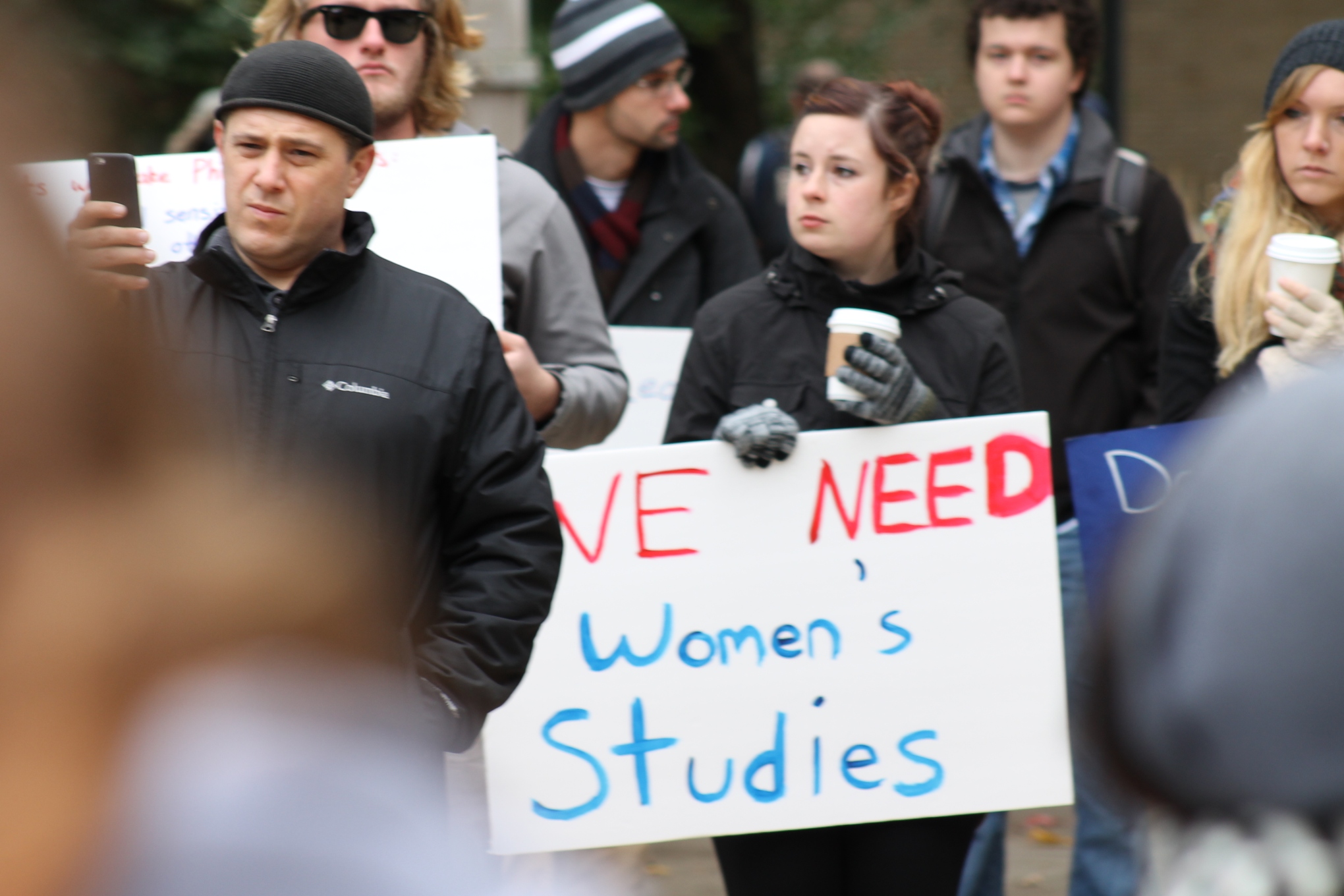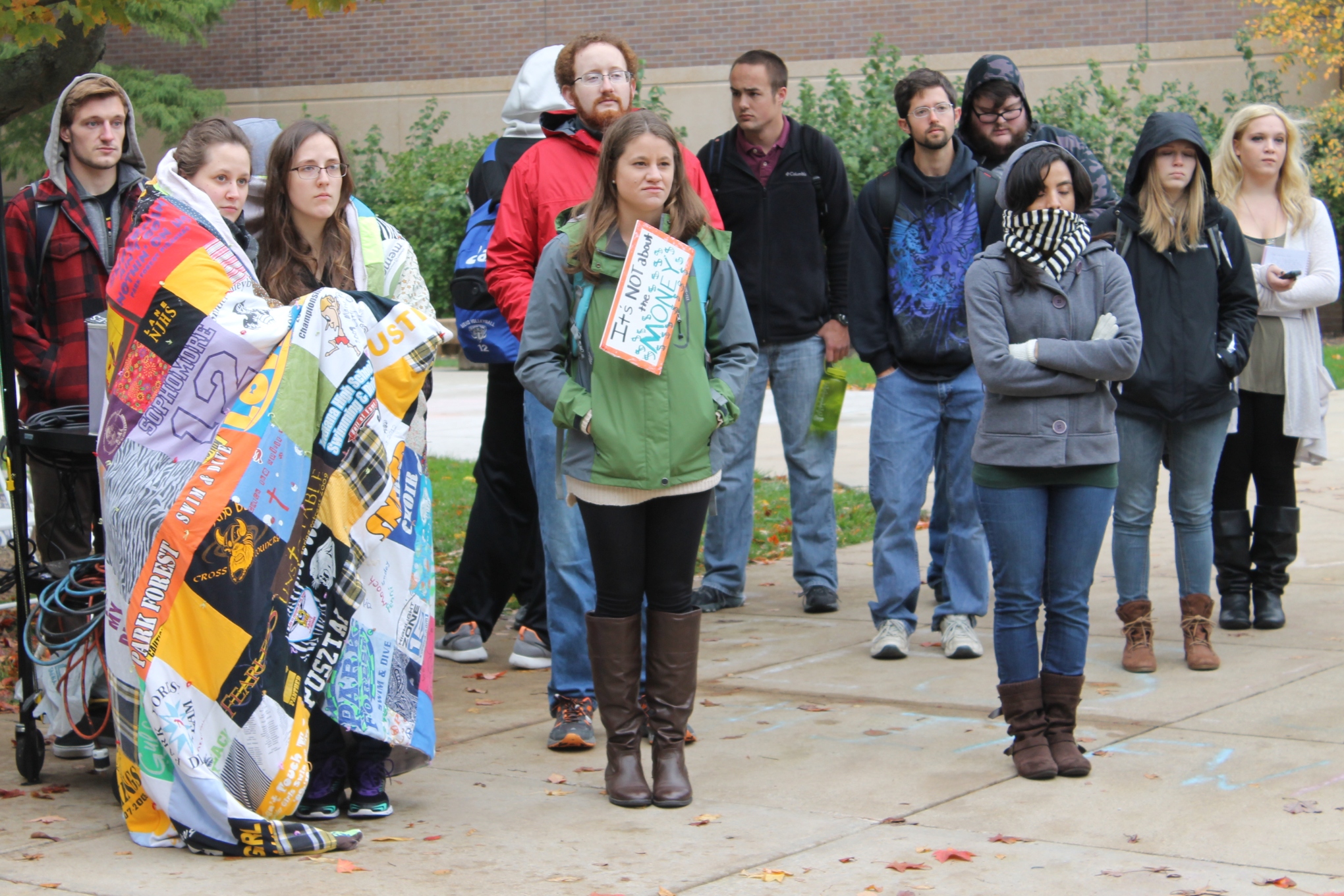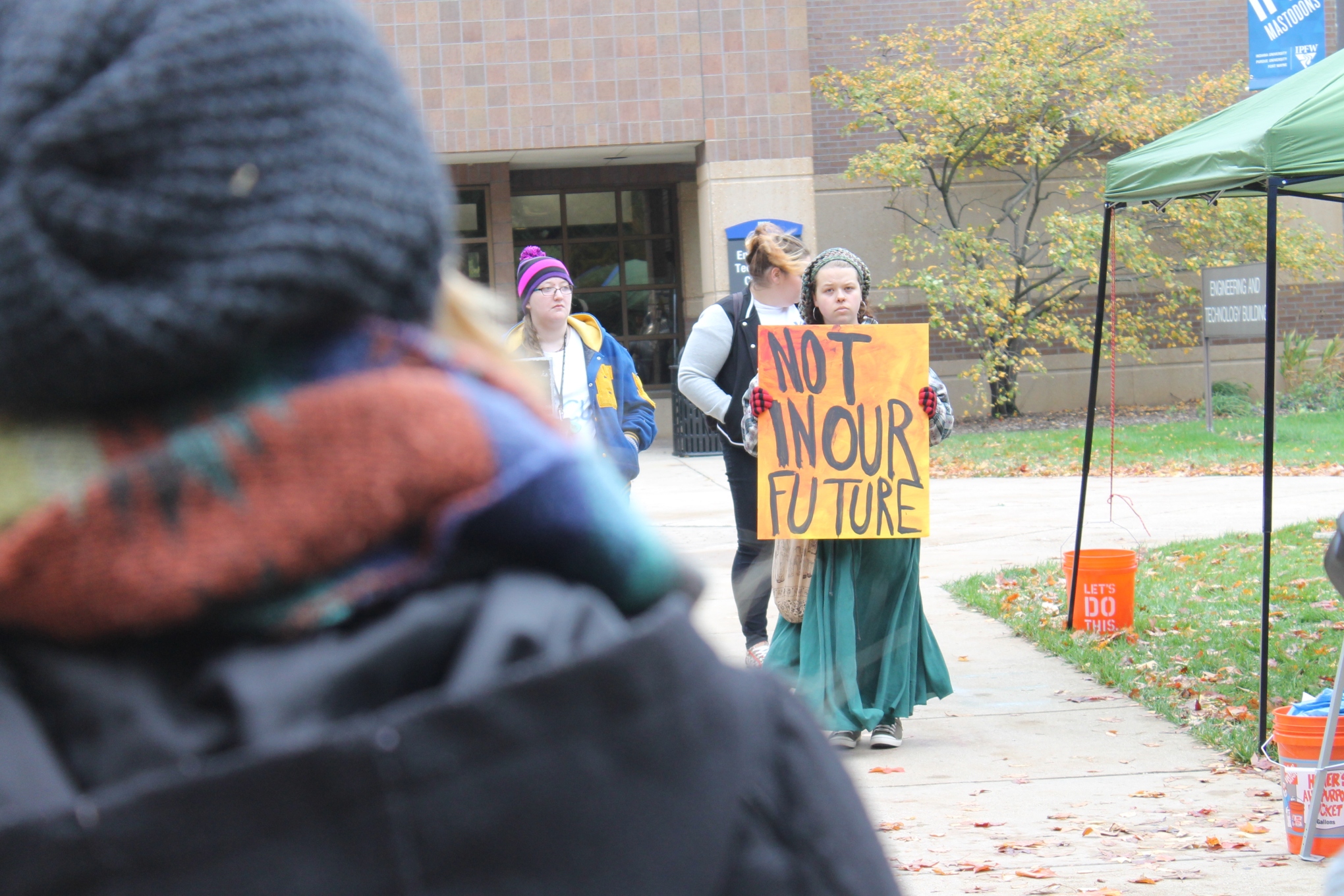
The women’s studies department is being cut, but all women are being affected.
IPFW is losing a number of academic programs and departments at the end of this school year as a result of the the University Strategic Alignment Process (USAP).
The USAP recommendations propose cuts of the philosophy, women’s studies, and geology programs, along with as two dozen other majors within larger departments.
“They called it a recommendation, but as soon as they made the recommendation, they suspended admissions to our program. So you can no longer sign up for a philosophy major here,” says Charlene Elsby, assistant philosophy professor.

Elsby is one of nine female professors whose job is in danger come Jan. 1, when the preliminary cuts take place, eliminating three departments entirely. She is not directly involved with women’s studies, but these cuts affect the livelihood of herself and others.
“My dad says I can move back in with him,” Elsby says with a nervous laugh.

Laura Laudeman, a junior theatre major, is also beginning to feel the ripple within her department, one not even on the long list of cuts.
“We’ve even decided that for this upcoming season, instead of focusing on shows, selecting shows that they thought would be beneficial to students,” Laudeman says, “one of the major factors in choosing the shows was, ‘Will they make money?’”

Money seems to be a driving factor in all of the decisions that will force change on students.
In 2015, 7,106 women were enrolled at IPFW, compared to 5,703 men. Women have been the majority of students on campus since before 1985, according to the annual IPFW Statistical profile.
Janet Badia, professor and director of the women’s studies program, realizes that it’s not just her colleagues or students that are feeling the changes.
“The students who are impacted in the other majors,” Biday says, “I see them around, they go to our events, I go to their events.”
One thing is agreed upon by many: the community will change because of USAP.
Jalyn Ely, a senior communication major, says this makes her look at the university in a different light.
“There are people who care about this,” Ely says, “There are people who are genuinely affected by this, who are seeing their hopes and their dreams and their career paths destroyed.”
Ely’s family members who were previously considering attending the university have decided not to in the wake of the cuts.
Worse yet, community members feel they are out of the loop regarding the changes affecting them.
Professors like Elsby and Badia, whose jobs are on the line, have known about the changes for almost a year, but students only recently found out details about the USAP recommendation in a campus wide email blast from Chancellor Vicky Carwein.
“They keep talking about, ‘we’ve tried to be really open and communicative about this,’” Laudeman says, “but I feel that there’s been a real lack of transparency.”
Laudeman is not wrong. In fact, a freedom of information on open records request regarding details of the USAP process and recommendations has been denied by university lawyers.
The recommendations have been the central focus of campus for weeks as IPFW approaches the first leg of USAP eliminations.
The university is also undergoing Legislative Services Agency (LSA) recommendations to repurpose the Fort Wayne campus. The process will put more of an emphasis on certain departments and could possibly mean major changes to the curriculum and programs offered.
Reasons given for the LSA changes by administration are budget adjustment and best-serving the purposes of the Fort Wayne community.
Mitch Daniels is the president of Purdue University and a driving force behind the LSA recommendations.
“He has underestimated the value of our campus and all that we do here when he says that the point of a regional campus is to train our students to be good employees,” Elsby says. “That negates their possibilities to become the innovators or the good employers.”

Tensions are rising around campus as the true consequences of the recommendations come to light. Women are beginning to realize the 22 students seeking degrees in women’s studies are not the only people affected.







 McKayla Atkinson (front row, far left) and Lauren Sanderson (front row, second from left) participated in Fort Wayne’s Free the Nipple Rally on September 12. Photo by Liz Turkette.
McKayla Atkinson (front row, far left) and Lauren Sanderson (front row, second from left) participated in Fort Wayne’s Free the Nipple Rally on September 12. Photo by Liz Turkette.